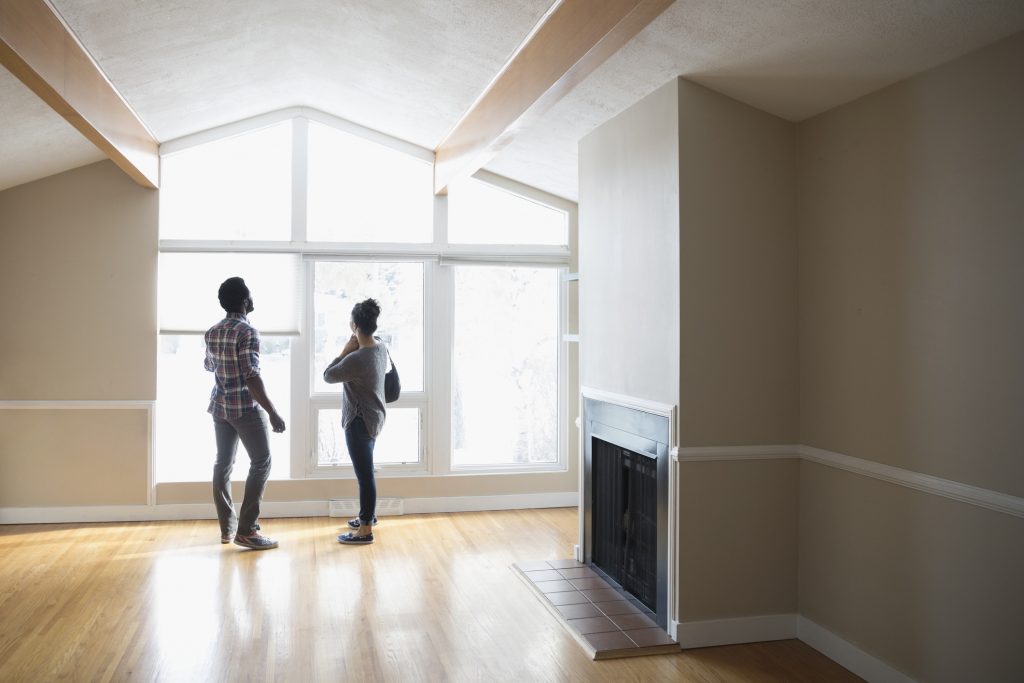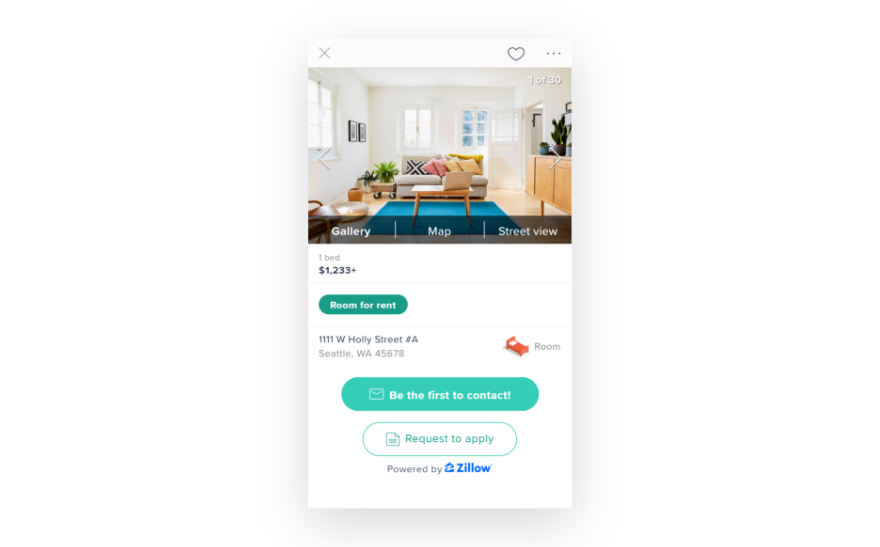
Use these 10 tips to help you rent out a room in your house, and learn if renting a room is right for you.

In this article:
Renting a room in your house is a common way to earn additional income or help pay your mortgage. According to the Zillow Group Consumer Housing Trends Report 2019 survey data, 24% of home buyers say it’s important to have the option to rent out a portion of their home while they’re living there. But before you start marketing your spare bedroom, you’ll need to understand how to rent a room in your house and determine whether it’s right for you.
Use these 10 tips to help you rent out a room in your house:
There may be local laws around renting rooms in your house — similar to the laws that govern renting your home — including:
Limitations on the number of people who can live on the property. Some states and cities may limit how many unrelated people can occupy a house.
Rules about maintaining a dwelling’s standards of habitability. You may be responsible for maintaining toilets, heat, locks, access to natural light and other amenities. If you don’t keep up the property, your tenant may be able to legally withhold their rent.
Landlord obligations. Make sure you are aware of (and comply with) your obligations as a landlord, which may include home repairs, handling late payments and when or if you can enter the tenant’s space.
Restrictions within a homeowners association. If you’re part of an HOA, do they permit you to rent a room in your house ? Check your HOA’s bylaws and local zoning laws before accepting a tenant.
It’s always a good idea to call your local housing authority and visit your city government’s website to find legal information about renting a room in your area.
Check your homeowners insurance policy to see whether you need to add any coverage like landlord insurance. Some insurance agencies may prohibit renting or charge a higher rate if you have tenants. Renting out a room may also increase your liability and the risk of property damage, which can affect insurance rates.
Before you rent a room out , you’ll need to go through your entire home to make sure it’s safe and compliant with all applicable standards of habitability. Here are some things you may want to do:
Most homeowners want to keep the master bedroom for themselves. But is that the best option? Particularly if there’s a private bathroom attached, you may have more luck finding a tenant if you give them the master bedroom. Plus, you may even be able to charge more for rent. If you have a basement with a bathroom and a small kitchen, that’s usually the preferred room rental option for both tenants and landlords — especially if there’s a separate entrance.
You can check rental websites like HotPads to determine the market rate for renting out a room in comparable homes. A 2019 study by HotPads economist Joshua Clark revealed that the most expensive market for renting a room is San Francisco at $1,375 a month, and the least expensive market is Pittsburgh at $650 a month — a whopping $725 difference. Be sure to account for these factors that can increase the amount a tenant is willing to pay for a room rental:
It’s also important to determine how a tenant will pay for utilities like gas, water, electricity, TV and internet. There are two major types of rent pricing you can use to include utility payments:
Fixed rent price: A flat monthly fee that includes the cost of utilities.
Variable rent price: A base price for renting the space, plus a percentage of the month’s utilities, which may vary depending on usage.
Advertise your room for rent online across networks like HotPads . You want your rental ad to accurately portray the living spaces and location, including:
Include at least 10 high-quality photos of the interior and exterior, as well as information about the lease duration, security deposit amount, rent price and how the rent will be billed.
Here is an example of a room for rent on HotPads:

If you’re considering renting out your entire house, check out Zillow Rental Manager — it has simple tenant screening, lease creation and online rent collection tools to make the process easy.
When you rent a room out , you become a roommate and a live-in landlord — which means you’ll need to comply with landlord-tenant and fair housing laws . A rental application will help you understand the applicant’s background and history to see if they’ll be a reliable renter. You’ll be able to:
Learn more about their rental history. Contact previous landlords to determine whether rent was consistently paid on time and if there were any noise complaints or issues with neighbors.
Give applicants a chance to explain discrepancies. The application should contain details about any prior bankruptcies, evictions and notices that may affect your decision to accept the applicant. By presenting this information in the application, a prospective tenant will be able to explain these issues.
Determine whether they can afford to rent a room. Use the applicant’s income and employment information to make sure they meet your specified income-to-rent ratio.
Disqualify renters who don’t meet the minimum requirements. If a renter can’t comply with your pet or smoking policies, you may be able to disqualify them. Your lease agreement should clearly state any house policies that might exclude renters.
Once you’ve determined an applicant is qualified, you can screen them to verify their information. Zillow Rental Manager makes running a background and credit check quick and easy. If an issue comes up during screening that causes you to disqualify the applicant, be sure to tell them exactly why you denied their application. You should also specify in the application who’s responsible for paying the screening fees.
When you’ve found an applicant who meets your requirements, you’ll want to discuss your house rules and whether they’re negotiable. Draft a standard lease agreement and attach a list of rules to ensure you and your tenant are on the same page before they rent a room in your house .
A room rental agreement should include:
Run your lease agreement by a lawyer or legal advisor to make sure you’ve covered everything, and then go over it with your tenant. Once you’ve both signed and dated it, the lease agreement becomes a legally binding contract.
Income earned from renting a room in a house is taxable, so consider opening a separate business checking account to track your income from rent and your expenses related to maintenance and upkeep.
Many common home expenses can be deducted, though the specifics vary by location. For example, if the tenant’s private living space is 20% of your home’s square footage, you may be able to deduct 20% of your expenses in the following categories:
Upgrades: These may include paint, windows or flooring.
Repairs or replacements: These include plumbing, roofing and other repairs to keep the home habitable.
Utilities: Typically, this category includes basic utilities like water, gas, electricity and trash.
Insurance: You may be able to deduct a portion of your homeowners and mortgage insurance.
Security: This category includes features such as a security system or locking gates.
Your home’s depreciation: Make sure to comply with the regulations set by the IRS.
If you give your tenant any credits or discounts, be sure to document them. For example, if you agree to take $100 off the month’s rent in exchange for yardwork, you may be able to deduct that as an expense.
There are plenty of benefits and downsides of sharing a living space. The most important thing is to ensure all residents are happy with their living situation — which is why it’s crucial to consider these pros and cons of renting out a room .
Homeowners often decide to rent a room out for additional income, but there are many other benefits that come with a roommate, including:
Although a roommate brings certain benefits, there are also downsides to renting out a room in your house , such as:
It’s important to consider your current living situation before deciding to rent a room in your house . Here are some factors that may help you decide:
Do you have enough space to accommodate another person? If you have a small living space and kitchen, you may feel overwhelmed or uncomfortable if you rent a room out to a stranger.
Can you live with others? Renting a room in your home may diminish the feeling of privacy that many homeowners value. Do you generally get along with people who have different personalities? Are you willing to compromise on certain things?
Are other members of your household on board? 86% of buyers who purchased a home in the past year live with someone else, and adding a roommate affects everyone in the home. Make sure to talk it over with the entire household.
Are there places in your home you don’t want a tenant to access? Renting out a room in your house means sharing entrances and living spaces. If you have a private office or room that you don’t want the tenant to access, consider installing a lock on the door.
For more articles, tips and trends on renting a room in your house and being a landlord, visit Zillow’s Rentals Resource Center .